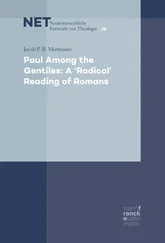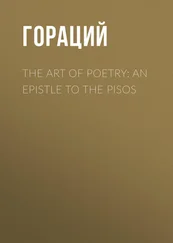Charles Gore - St. Paul's Epistle to the Romans - A Practical Exposition. Vol. II
Здесь есть возможность читать онлайн «Charles Gore - St. Paul's Epistle to the Romans - A Practical Exposition. Vol. II» — ознакомительный отрывок электронной книги совершенно бесплатно, а после прочтения отрывка купить полную версию. В некоторых случаях можно слушать аудио, скачать через торрент в формате fb2 и присутствует краткое содержание. Издательство: Иностранный паблик, Жанр: foreign_religion, foreign_antique, foreign_prose, на английском языке. Описание произведения, (предисловие) а так же отзывы посетителей доступны на портале библиотеки ЛибКат.
- Название:St. Paul's Epistle to the Romans: A Practical Exposition. Vol. II
- Автор:
- Издательство:Иностранный паблик
- Жанр:
- Год:неизвестен
- ISBN:нет данных
- Рейтинг книги:5 / 5. Голосов: 1
-
Избранное:Добавить в избранное
- Отзывы:
-
Ваша оценка:
- 100
- 1
- 2
- 3
- 4
- 5
St. Paul's Epistle to the Romans: A Practical Exposition. Vol. II: краткое содержание, описание и аннотация
Предлагаем к чтению аннотацию, описание, краткое содержание или предисловие (зависит от того, что написал сам автор книги «St. Paul's Epistle to the Romans: A Practical Exposition. Vol. II»). Если вы не нашли необходимую информацию о книге — напишите в комментариях, мы постараемся отыскать её.
St. Paul's Epistle to the Romans: A Practical Exposition. Vol. II — читать онлайн ознакомительный отрывок
Ниже представлен текст книги, разбитый по страницам. Система сохранения места последней прочитанной страницы, позволяет с удобством читать онлайн бесплатно книгу «St. Paul's Epistle to the Romans: A Practical Exposition. Vol. II», без необходимости каждый раз заново искать на чём Вы остановились. Поставьте закладку, и сможете в любой момент перейти на страницу, на которой закончили чтение.
Интервал:
Закладка:
Indeed, the prophet Hosea (ii. 23, i. 10) foresaw this choice of a yet unrecognized people to be God's people. Isaiah again (x. 22) anticipated no more than a remnant surviving of all the multitudes of Israel, because of the sharpness and conclusiveness of the divine judgement upon them. And (i. 9) it is only to the compassion of God that he attributes their exemption by means of the faithful remnant from entire annihilation, like that of the Cities of the Plain.
What shall we say then? Is there unrighteousness with God? God forbid. For he saith to Moses, I will have mercy on whom I have mercy, and I will have compassion on whom I have compassion. So then it is not of him that willeth, nor of him that runneth, but of God that hath mercy. For the scripture saith unto Pharaoh, For this very purpose did I raise thee up, that I might shew in thee my power, and that my name might be published abroad in all the earth. So then he hath mercy on whom he will, and whom he will he hardeneth.
Thou wilt say then unto me, Why doth he still find fault? For who withstandeth his will? Nay but, O man, who art thou that repliest against God? Shall the thing formed say to him that formed it, Why didst thou make me thus? Or hath not the potter a right over the clay, from the same lump to make one part a vessel unto honour, and another unto dishonour? What if God, willing to shew his wrath, and to make his power known, endured with much longsuffering vessels of wrath fitted unto destruction: and that he might make known the riches of his glory upon vessels of mercy, which he afore prepared unto glory, even us, whom he also called, not from the Jews only, but also from the Gentiles? As he saith also in Hosea,
I will call that my people, which was not my people;
And her beloved, which was not beloved.
And it shall be, that in the place where it was said
unto them, Ye are not my people,
There shall they be called sons of the living God.
And Isaiah crieth concerning Israel, If the number of the children of Israel be as the sand of the sea, it is the remnant that shall be saved: for the Lord will execute his word upon the earth, finishing it and cutting it short. And, as Isaiah hath said before,
Except the Lord of Sabaoth had left us a seed,
We had become as Sodom, and had been made like
unto Gomorrah.
What has been already said will have been enough to guard against the main sources of mistake in reading this section. St. Paul might have much to say about God's righteousness in general, and large ways of vindicating it. But here he holds fast to the single aspect of righteousness according to which it means that God has been true to the original principles of His covenant. The God who chose Abraham and Moses is the God who is now, and rightly on His own declared principles of government, rejecting the greater part of the people of Abraham and Moses. This – faithfulness to His own declared principles – is what St. Paul here means by His righteousness. And as it was God's declared principle to retain His own liberty to show mercy on men according to His free will, inside or outside the chosen people, so on the other hand He retained His liberty to exhibit His judgement of hardening according to His will inside or outside the chosen people. He who brought Pharaoh the Egyptian upon the stage of history 36 36 In the original the words run, 'For this cause have I made thee to stand,' i.e. probably, 'I have preserved thy life under the plague of boils, and other plagues, in order to make thee an example of a more conspicuous judgement.' But St. Paul, departing from the Greek Bible, uses a word 'raised thee up,' which in Pharaoh's case, or in that of Cyrus, means to bring upon the stage of history. Isa. xli. 2; cf. Jer. 1. [xxvii in the Greek] 41; Hab. i. 6.
, as an example of hardening judgement, is within His right in doing the same now with (the mass of) the people of His choice. The liberty asserted for God is wholly consistent with His being found, in fact, to have 'hardened' those only who have deserved hardening by their own wilfulness. It was for such a moral cause that God hardened the hearts of the Jews, that 'seeing they might not see, and hearing they might not hear 37 37 See Matt. xiii. 14, 15; Mark iv. 12; John xii. 40.
.' We can feel no doubt that some similar moral cause underlay the hardening of Pharaoh. But this is not St. Paul's present point. All his argument is directed to asserting God's liberty to show mercy or harden, irrespectively of considerations of race, when and where He in His sovereign moral will chooses.
We should notice that St. Paul's method is here, as elsewhere, what is called ideal or abstract, in the sense that he makes abstraction of a particular point of view; and, apparently indifferent to being misunderstood, substantiates his argument upon the particular aspect which he has taken apart from the whole matter in hand, till it is done with, and then other points can be taken in their turn. And he does not, as a modern writer would do, painfully correlate the various aspects of the subject 38 38 Cf. vol. i. p. 75.
.
By means of the famous simile of the potter St. Paul asserts two principles about God: (1) that God is free, and condescends to give no account to His creatures, in absolutely determining the high or low vocations of men. To one man or nation He gives five talents, to another two, to another one. He makes vessels to honourable and vessels to (comparatively) dishonourable uses. He makes men Jews or Assyrians, Englishmen or Hottentots, at His absolute discretion. (2) That God is absolutely free, when the human material which He is moulding for His purposes proves intractable, to repudiate and reject what has, by its refusal to mould, become a 'vessel of wrath' fit 'to be taken and destroyed.' And it is only by a voluntary limitation of this freedom that He exhibits long toleration with the intractable and obstinate, and is longsuffering with them even when His wrath is ready and waiting to show itself. These are the two distinct points in the simile of the potter. We must distinguish carefully between the 'vessels destined for dishonour' – the 'less honourable limbs' of humanity – and the 'vessels of wrath,' or 'vessels fitted for destruction,' i.e. those which have proved themselves unfit for the vocation to which they were destined and have to be rejected. We note that St. Paul does not say that God fitted vessels for destruction, but that He bore long with those which had so become fitted . St. Paul never gives us any real justification – if we look at his language carefully – for the idea of any predestination to rejection , as distinct from predestination to higher or lower purposes. And the New Testament is full of assurances that a predestination to a low vocation in this world may be a predestination to high glory in eternity, if the humble calling is faithfully followed.
It ought not to be denied, however, that in all this passage St. Paul's feet, as he moves along his argument, are dogged by the metaphysical difficulty of finding room for human free-will inside the universal scope of the divine action and the prescience of the divine wisdom. This is a perennial difficulty. But St. Paul does not touch it. He does not even touch the question of whether God does actually (in our sense) foreknow the final destiny of every individual, and how he will act on each occasion 39 39 On the meaning of divine foreknowledge in St. Paul see vol. i. p. 317.
; he does not touch the question how or how far human wilfulness can be allowed to disturb the divine order. In the Pharisaic schools he would certainly have been brought up, as Josephus tells us, both to 'attribute everything to fate and God,' and also to recognize that it 'lay with men for the most part to do right or wrong': to believe that 'everything was foreseen,' and also that 'free-will was given'; or, as Josephus elsewhere puts it (as if it made no difference), to believe 'that some things, but not all, are the work of fate, and other things are in men's own power and need not happen 40 40 See Joseph. Antiq. xiii. 5, 9; xviii. 1, 3; Bell. Jud. ii. 8, 14. Cf. Schürer, Jewish People (English trans.), Div. ii. vol. ii. pp.14 ff.; James and Ryle, Ps. of Solomon , p. 96. The Essenes, Josephus says, believed in fate, and not in free-will; the Sadducees in free-will and not in fate; but the Pharisees in both. No doubt Josephus is importing Greek philosophical views into his account of Jewish parties, but substantially his account is probably true.
.' That is to say, he would have been educated to believe both in predestination and in freedom, without any special attempt to reconcile the two. We can tell for certain that this inherited belief was further moralized in St. Paul's case by his enlarged view of the divine purpose as working through high and low estates alike, for the final good of all men; and by his deepened perception of the correspondence with God's purpose, which, in the exercise of our freedom, is required of us. But, so far as we know, St. Paul left the strictly metaphysical question exactly where he found it – as an imperfectly reconciled antithesis. And there perhaps we men shall always have to leave it, or at least till we come to know even as we are known.
Интервал:
Закладка:
Похожие книги на «St. Paul's Epistle to the Romans: A Practical Exposition. Vol. II»
Представляем Вашему вниманию похожие книги на «St. Paul's Epistle to the Romans: A Practical Exposition. Vol. II» списком для выбора. Мы отобрали схожую по названию и смыслу литературу в надежде предоставить читателям больше вариантов отыскать новые, интересные, ещё непрочитанные произведения.
Обсуждение, отзывы о книге «St. Paul's Epistle to the Romans: A Practical Exposition. Vol. II» и просто собственные мнения читателей. Оставьте ваши комментарии, напишите, что Вы думаете о произведении, его смысле или главных героях. Укажите что конкретно понравилось, а что нет, и почему Вы так считаете.












